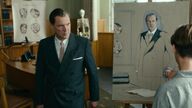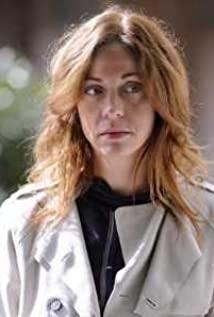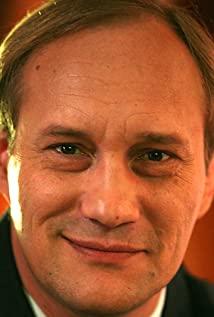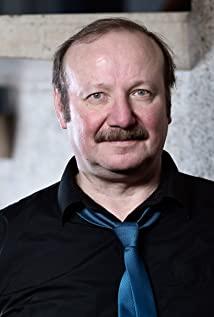Connecting the pre-war and post-war, spanning the East and the West, but "No Master's Work" is not about big history, it is director Florian Henkel von Donnersmark's declaration of beauty Book.
The director wants to say in three eras: First, aesthetics cannot be fixed in one pattern. 2. Works that are separated from the creator's subjective consciousness are just decorations. 3. Throughout the whole film, it is fundamental - what is true is beautiful, and what is true is beautiful.
However, what is the real cost? Did the male protagonist really insist on being true and become famous in the end? No, he just replaces the virtual form with the real form, and then wraps the discourse of contemporary art. He saw the price of death from his aunt and father. He shouted "I would do all work" and entered the art world. He compromised from the beginning. The male protagonist has right and wrong, and he is clear about his pursuit, but he bows his head to the visible bondage, and also obeys the invisible bondage. He actively embraces the expression of contemporary art, learning, imitating, adding his own creativity, and producing a bunch of decorations. Under the discourse system of contemporary art, being a submissive servant is not enough. When one day, the actor finally sat in front of the microphone and the camera, it was found that he was very familiar with this system. This is the "truth" of the hero's success, the "truth" of Vanity Fair.
The male protagonist is a character of forbearance. His forbearance can be understood as toughness or cowardice. In contrast to the cowardly male protagonist, his father-in-law and his enemies are like powerful sharks, black sea, red sea, blue sea, no matter what kind of discourse system, they are always at ease, this merciless villain always floats on the upper layer of the food chain . He also represents a reality. His most ruthless remarks on the male protagonist's artistic career are the most blunt insights into the vulgarity of contemporary art formalization.
A more distinctive role than the father-in-law is the protagonist of the first half hour of "No Master's Work" - the male protagonist's aunt. She martyred the truth and beauty with a beautiful life, and she is the most real existence in the whole film. She is the introduction to "No Master". At the end, the male protagonist gently closed his eyes as the bus horns sounded in sequence. In a similar evening more than 20 years ago, the aunt planted a true and beautiful seed in his heart. Seeds take root, sprout, grow, and bloom in the space between the virtual and the real. The flower comes from the seed, and also turns away from the seed. Going back to the roots and discovering the truth is the last consolation to the viewers of "Work Without Owner".
Director Florian Henkel von Donnersmarck's name is closely associated with the famous "Eavesdropping Storm". Before I saw the name, I thought that the director of "Borderless" was a young director. The first reason is that the soundtrack is very good, but it is oversaturated. The second reason is that in the first half, the narrative is relatively loose, and the story told has the feeling of a TV series story. Fortunately, the latter has received the artistic pursuit of the male protagonist.
In addition to art criticism, this three-hour film has a lot to watch, and everyone can take what they want. In the film, my favorite works of art are the modern art works in the exhibition of degenerate art held by the Nazis at the beginning of the film. The colors are bright, interesting and understandable.
View more about Never Look Away reviews











